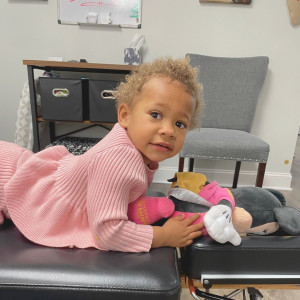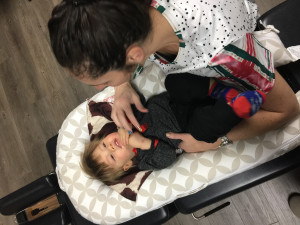 You’re not alone in this, and today, we want to shed light on a condition that could be the missing piece of your child’s health puzzle: dysautonomia.
You’re not alone in this, and today, we want to shed light on a condition that could be the missing piece of your child’s health puzzle: dysautonomia.The Hidden Epidemic
We are currently facing an epidemic of chronic health problems among teens and young adults. Anxiety, depression, gut issues, autoimmune conditions, and even seizures have become alarmingly common. Watching your child go through this can leave you feeling helpless.
Traditional medicine often falls short, offering only a mix of medications to mask symptoms. Many teens we meet are on multiple prescriptions that cause unpleasant side effects, leaving them feeling worse. These treatments rarely address the root cause of their health problems.
Connecting the Dots: Dysautonomia
What if we told you there’s a common thread linking these seemingly unrelated conditions? It’s called dysautonomia, a dysfunction and imbalance in the autonomic nervous system. Understanding this condition may unlock the path to better health for your child.
What is Dysautonomia?
The autonomic nervous system (ANS) controls automatic functions like heart rate, digestion, and temperature regulation. It has two branches:
- The sympathetic nervous system (our “fight or flight” response)
- The parasympathetic nervous system (our “rest and digest” mode)
In a healthy system, these branches work together to maintain balance. But with dysautonomia, this balance is disrupted, leading to a wide range of symptoms that affect almost every system in the body.
The Two Main Problems of Dysautonomia
- Sympathetic Overdrive: The “fight or flight” system gets stuck in the “on” position.
- Parasympathetic Suppression: The “rest and digest” system gets shut down.
This imbalance can cause issues throughout the body, showing up in specific areas:
- Sleep: Difficulty falling or staying asleep, leading to fatigue and brain fog.
- Digestion: Gut health suffers because the body diverts energy away from digestion during stress.
- Immune function: Chronic stress weakens the immune system and increases inflammation.
- Brain health: Cognitive, emotional, and behavioral issues arise when dysautonomia is present.
The “Perfect Storm”: Origins of Dysautonomia
Dysautonomia doesn’t happen overnight. It’s often the result of a “Perfect Storm” of factors, including:
- Prenatal stress
- Birth trauma or interventions
- Early childhood stress
- Environmental toxins
- Poor nutrition
- Chronic infections
Recognizing these factors helps us take a more comprehensive approach to your child’s healing.
 Taking Charge of Your Child’s Health
Taking Charge of Your Child’s Health
You have more power than you realize to help your child overcome dysautonomia. Here’s how:
- Recognize the Signs: Pay attention to patterns like sleep disturbances, digestive issues, and anxiety.
- Seek Proper Care: Traditional medical tests often miss dysautonomia. Look for healthcare providers who use Neurological INSiGHT Scans, particularly Heart Rate Variability (HRV) testing, to detect dysautonomia.
- Explore Holistic Approaches: Consider Neurologically-Focused Chiropractic Care, which addresses the root cause of dysautonomia and helps balance the nervous system.
- Support the Nervous System: Implement stress-reduction techniques, proper nutrition, and a sleep-friendly environment to aid healing.
- Be Patient: Healing takes time. Celebrate small victories and stay persistent as your child’s nervous system learns to function optimally again.
- Educate Yourself: Understanding dysautonomia empowers you to better support your child’s recovery.
Hope for the Future
Parents, dysautonomia and chronic health challenges don’t have to control your family’s life. Thousands of families are finding hope and answers through Neurologically-Focused Chiropractic Care.
At New Hope Chiropractic, our care begins with a Consultation and Case History, where we ask deeper questions than most doctors to find the root cause of your child’s health challenges. We follow this with INSiGHT Scans to detect dysautonomia and nervous system imbalances. This 15-20 minute process can transform your understanding of what’s truly going on with your child.
Next, we’ll sit down with you to go over the scan findings and provide a Customized Care Plan tailored to your child’s specific needs. We don’t just treat symptoms—we address the root cause.
Don’t wait—reach out to New Hope Chiropractic today. If you’re not local to us, visit the PX Docs directory to find a nearby office.
You are your child’s best advocate. By understanding dysautonomia and taking proactive steps, you can help your child not just survive, but thrive!

